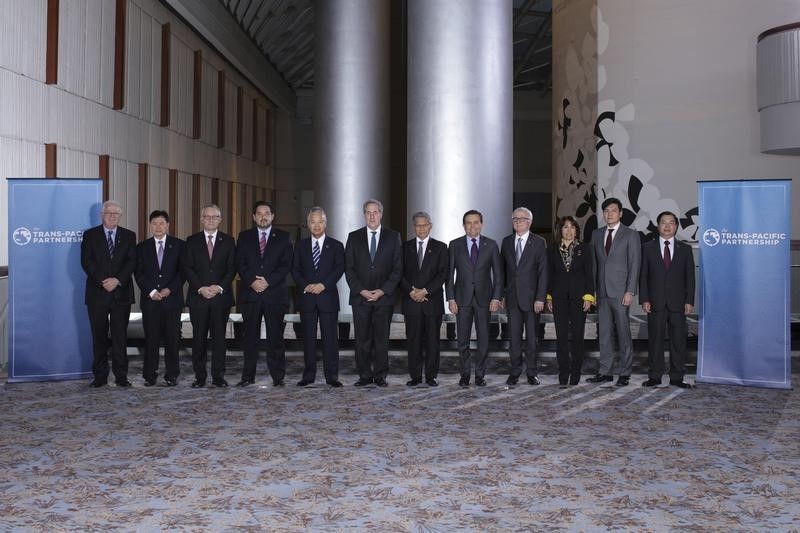By Richard Cowan
WASHINGTON (Reuters) - A 12-nation Pacific Rim free-trade deal, facing stiff opposition from many Democrats and unexpected resistance from Republicans, is unlikely to be voted on by the U.S. Congress before President Barack Obama leaves office, according to some Republican lawmakers and aides.
A veteran Senate Republican aide, who asked not to be identified, said Republican leaders intend to shelve the deal until after the November 2016 presidential election, which would dash administration hopes of a vote in the first half of next year.
Obama however said he was confident the deal would be ratified.
Speaking in Manila on the sidelines of the Asia-Pacific Economic cooperation summit, he said there wasn't a modern trade deal that had not seen opposition.
"I'm confident that we're going to get it done," he said.
The Republican aide said much of the Senate Republican rank and file "is not supportive of the agreement" negotiated by Obama and 11 other countries that aims to liberalize trade for 40 percent of the world economy.
"I doubt seriously that we're going to get that resolved by 2016," Senate Finance Committee Chairman Orrin Hatch told Reuters on Tuesday regarding the Trans-Pacific Partnership (TPP).
"Nobody wants to do it in the lame duck either so it will probably carry over," Hatch said referring to the end-year session of Congress that occurs after the November elections but before the new Congress and president are sworn in.
Hatch previously had said it would be difficult to bring TPP to a vote in Congress during the 2016 election year. Congressional aides' comments suggested Hatch's sentiment was widely held.
With few Democrats in the House expected to vote for TPP, Obama has been relying on Republicans - who control both the Senate and the House of Representatives - to provide the votes needed for approval.
On Friday, Obama urged Congress to "move promptly" in early 2016 to approve the trade pact. He also hopes to build momentum at the Manila summit for the TPP, a key plank of the administration's engagement with Asia.
But the outlook has soured in Congress. Although many farm lobby groups have come out in support, business groups are still mulling the fine print. New House Speaker Paul Ryan, a trade supporter, has yet to declare his view. A spokesman for Ryan said no decision had been made on the timing of a vote.
Another House Republican leadership aide said TPP needs a long, thorough review by Congress, calling it a "complicated, lengthy deal." The aide added: "The president doesn't have the political capital (to get it passed) that he once had."
Hatch has criticized the deal for failing to secure 12 years of protection for some pharmaceuticals, a goal that U.S. officials say was just not possible given staunch opposition from countries like Australia.
The high-ranking Republican has said Obama might have to reopen negotiations with the other 11 countries to address his concerns. That idea has been firmly rejected by the White House and Japan, the second-biggest economy in the bloc.
"No one is in a hurry, and the message from many (Senate Republicans) will be we need to restart negotiations," the Senate aide told Reuters.
Complicating TPP's prospects in Congress are opposition from aspiring presidential candidates, including Republican front-runner Donald Trump. Democratic front-runner Hillary Clinton has split with Obama and said free-trade deals could do "more harm than good."
Pete Sessions, a senior House of Representatives Republican who supported key trade legislation earlier this year, told Reuters that the Obama administration failed to follow markers put down by Congress when he negotiated TPP.
"It's a tough thing for a Republican to put a trade bill up (for a vote) and not support it when the whole concept was for us to offer an advantage against what the Chinese have done to the marketplace, and that's what this was about."
